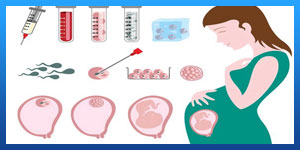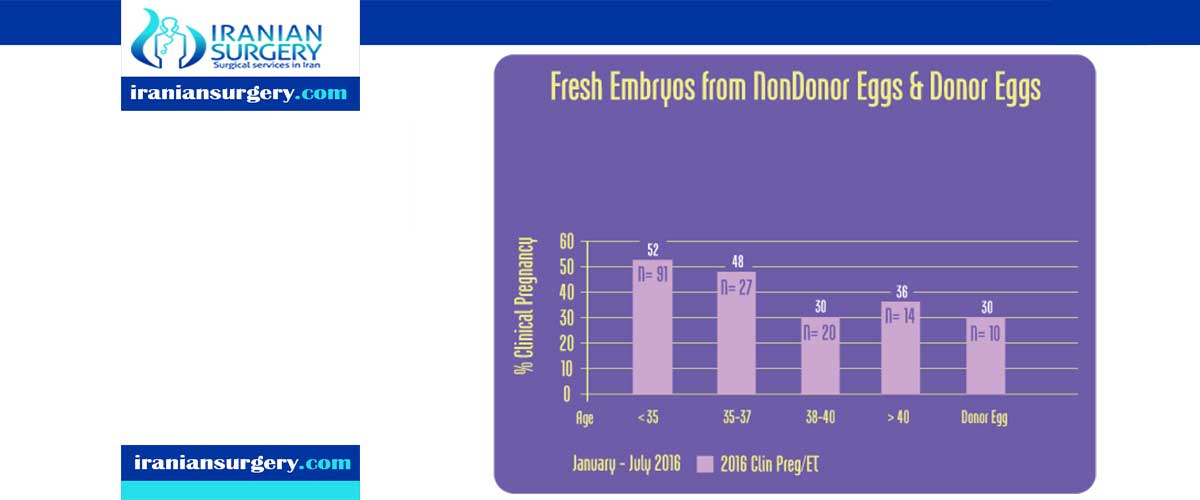How successful is IVF with donor eggs?
How does IVF work with donor eggs?
Will a donor egg have my DNA?
What is the success rate of egg donation?
Women under 35 using their own eggs for IVF have about a 40% chance of having a baby, but for women over 42 that chance drops to 4.5%. However, using donor eggs changes the chances of having a baby through IVF increases to 49.6% when fresh donor eggs are used, for women of any childbearing age. a donor-egg IVF has the highest success rates of any treatment, with 52% of women showing positive results nationally. No matter whose egg or whose uterus, both must fit certain criteria to produce a successful pregnancy.

Read more about : What are the Biggest Differences between IUI and IVF?
Read more about : How much does 1 round of IVF cost in Iran?
How does IVF work with donor eggs?
Once the donor and intended mother get their periods, the treatment cycle itself will begin. The donor will be taking injectable fertility drugs in order to stimulate egg production. Her cycle will follow very closely to a conventional IVF cycle, skipping the embryo transfer.
The intended mother will give herself injections meant to suppress the reproductive system so the doctor can keep the donor and her in sync. She will also take estrogen supplementation. The estrogen will signal the uterus to create a suitable lining.
When the eggs in the donor’s ovaries look ready, the donor will get an injection of hCG. This is also known as a trigger shot. It will start the last stage of egg maturation. Around this time, the intended mother will start taking progesterone supplementation. Like the estrogen, this helps prepare the uterus for the embryo.
The donor will come into the fertility clinic for the egg retrieval. Egg retrieval is done using an ultrasound-guided needle.
After the egg retrieval is complete, the donor’s active role in the cycle is over.
Read more about : Does icsi increase chance of twins?
Will a donor egg have my DNA?
Because a donor egg won't share any of its genes with its intended mother, there's a chance the baby will not resemble its mother. However, if her partner's sperm was used, the baby may look like its father because they share the same genetics. it’s important for couples to understand that nothing is definitive — giving birth to a child naturally doesn’t ensure they look like you and using a donor egg doesn’t automatically mean your child won’t resemble you at all. Particularly if you and the donor are the same ethnicity, there’s a strong chance the baby will still resemble you.
We understand that parents naturally have a desire to raise a child that looks like them, however genes don’t make a family. Even if your child doesn’t look like you, that doesn’t make them any less your baby.
Read more about : Is the IVF procedure painful?
What is the success rate of egg donation?
Each stage of the process also has its own success rates: the chance of a fertilized donor egg producing properly developing embryos is about 80%, the chance that those embryos will implant correctly in a uterus is about 75-85%, and the chance of clinical pregnancy is about 55-65%.
Read more about: IVF with frozen donor eggs process
Read more about : Intrauterine Insemination (IUI)
Read more about : Zift infertility treatment


